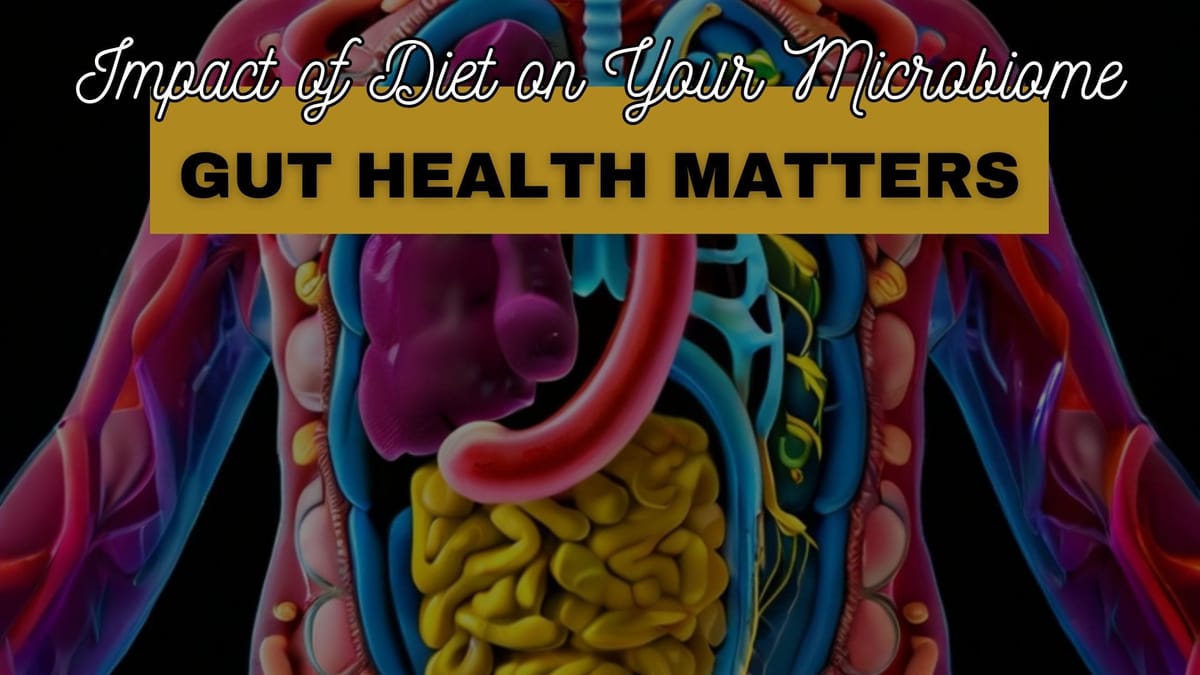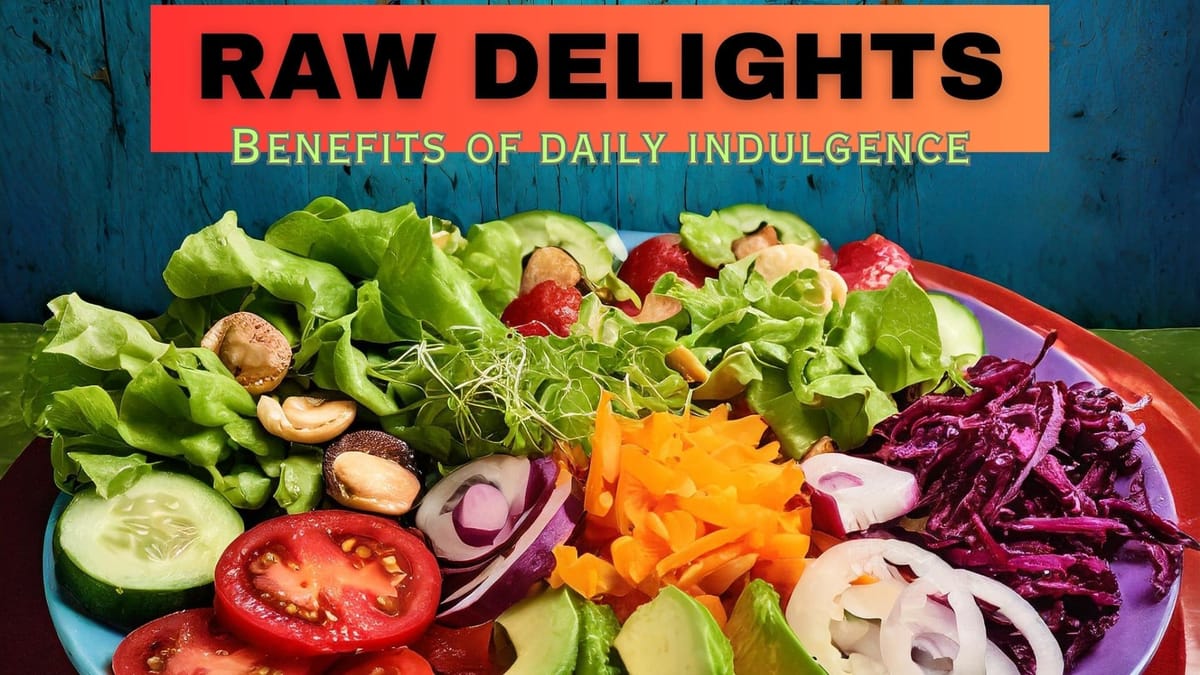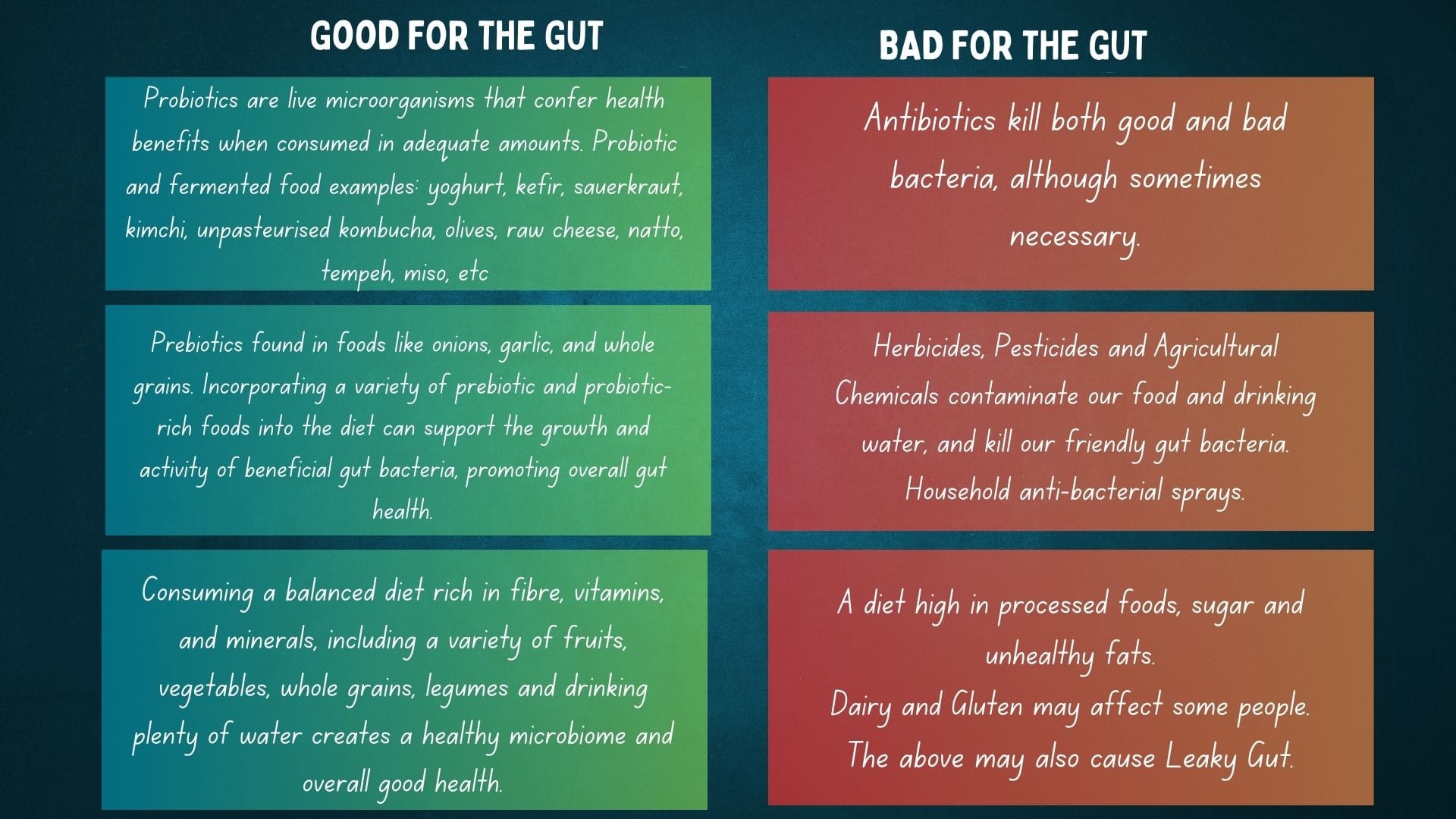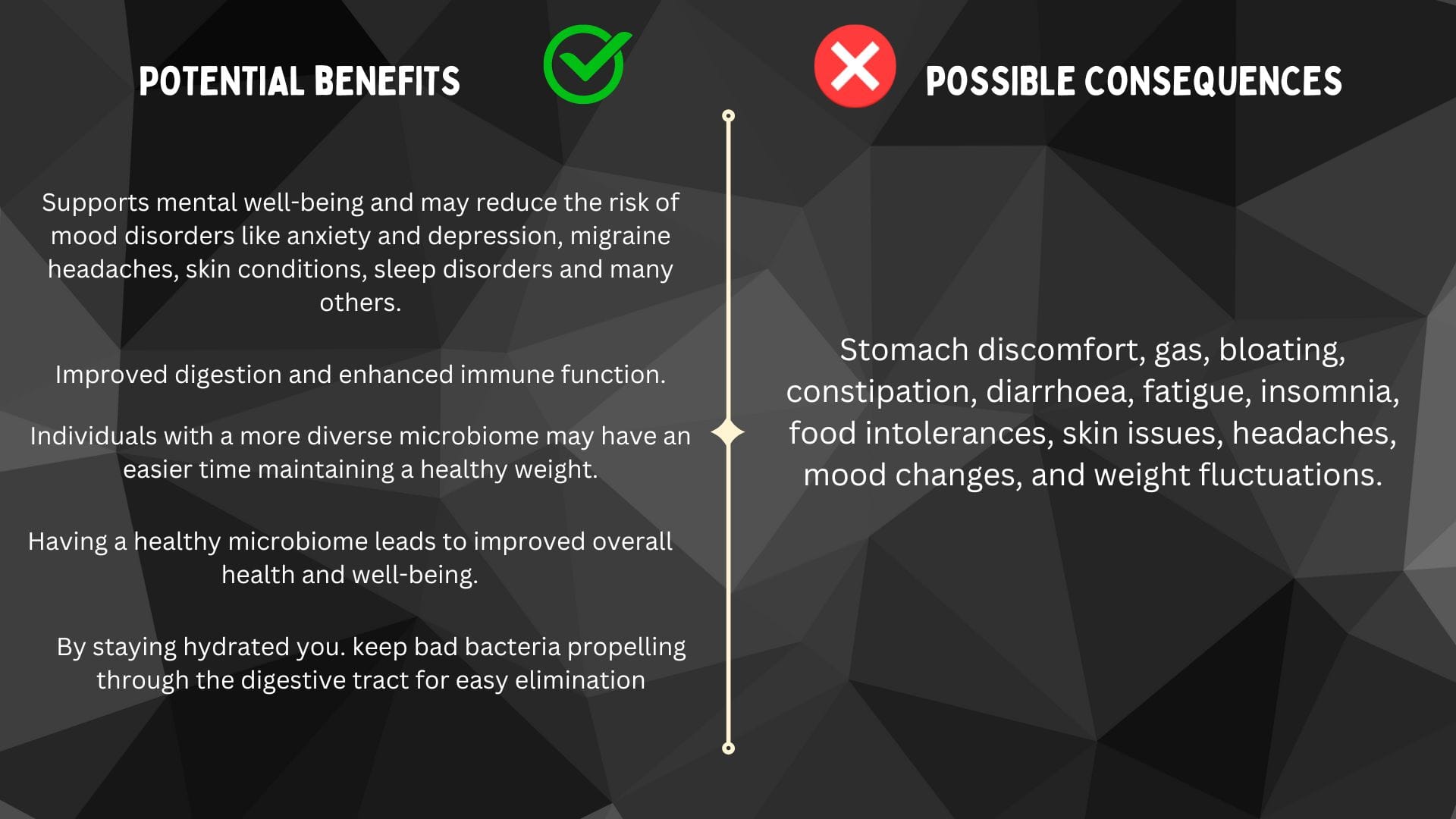Gut Health Matters: The Impact of Diet on Your Microbiome and Well-Being
In this article, we will explore the intricate relationship between diet and gut health, and discuss how making mindful food choices can support a healthy microbiome and promote overall well-being.

The health of our gut plays a critical role in our overall well-being, affecting everything from digestion to immunity and even mental health. One of the key factors that influence gut health is diet, which shapes the composition and function of the gut microbiome – the trillions of microorganisms that work together to break down food, synthesize vitamins, and support immune function.
Why Have I Heard I Have A ‘Brain’ In My Gut?
Our gut is full of nerves and neurotransmitters that form a neural network called the Enteric Nervous System (ENS). The ENS is wired directly to the brain, hence why stress and anxiety can affect digestion. Research is only beginning to uncover how complex the functions of the ENS are, including the fact that our gut cells even produce the mood-enhancing neurotransmitter, serotonin. This mechanism has prompted fascinating research into the link between our gut and certain behavioural disorders.
Imbalances in the gut microbiome have been linked to various health issues, including inflammatory bowel disease, obesity, and even depression.
What Affects Our Gut Health?
Many factors in our modern environment negatively impact our gut health. From a young age, most of us are given antibiotic medications, which interfere with our microbiome. While antibiotics are designed to attack pathogenic (bad) bacteria, they indiscriminately wipe out our good bacteria.
Pesticides, herbicides and other agricultural chemicals have similar actions to antibiotics; after all, they are applied to kill bugs that attack plants. Sadly, these residual chemicals wind up in our gut when we eat non-organic food and hurt our friendly tummy bugs, too. Remember, agricultural run-off makes its way into our waterways, so unfiltered water can also be contaminated with compounds that reduce our gut flora.
Being ‘over-hygienic’ in the home can also contribute to imbalances in your gut flora. In particular, anti-bacterial sprays and lotions unfavourably impact your microbiome. Our bodies naturally require some exposure to dirt and germs to build a healthy, robust immune system but an over-emphasis on ‘cleanliness’ can interfere with this natural process.

10 Signs of an Unhealthy Gut
- Frequent discomfort, upset stomach, gas, bloating, constipation, diarrhoea, and heartburn could be signs that your gut is struggling to process food and eliminate waste.
- Feeling tired - people with chronic fatigue may have imbalances in the gut. One study found that almost half of people with fatigue also had Irritable Bowel Syndrome (IBS).
- Trouble sleeping - an unhealthy gut can cause insomnia, which leads to fatigue. Most of our serotonin, which affects mood and sleep, is produced in the gut. So, when there is inflammation in the gut, your sleep may be affected
- Food intolerances - you may have a food intolerance if you struggle to digest certain foods. This can cause bloating, gas, diarrhoea, nausea, and abdominal pain.
- Food cravings, especially sugar - too much ugar can cause an imbalance of “bad” bacteria in the gut. High sugar consumption, especially high-fructose corn syrup, is linked to inflammation and other diseases.
- Skin irritations - conditions like acne, eczema, and psoriasis may be related to gut issues.
- Headaches - There may be a link between headaches, migraines and gut health, especially if you experience nausea or vomiting with migraines. Studies suggest that people with frequent headaches are more likely to have gastrointestinal disorders too.
- Some “bad” gut bacteria may trigger autoimmune conditions like thyroid issues, rheumatoid arthritis, multiple sclerosis, and type 1 diabetes
- Frequent mood changes - gut problems and inflammation in the nervous system can lead to anxiety and depression.
- Unintentional weight gain or loss - when your gut is imbalanced, your body may struggle to absorb nutrients, store fat, and regulate blood sugar. Fluctuations in weight may be caused by bacteria overgrowth or lack of nutrients.
The Influence of Diet on Gut Health
Diet is one of the most significant factors that shape the composition of the gut microbiome. Consuming a diverse range of plant-based foods provides the fibre and nutrients necessary for beneficial gut bacteria to thrive. On the other hand, a diet high in processed foods, sugar, and unhealthy fats can promote the growth of harmful bacteria, leading to an imbalanced microbiome. Additionally, certain food groups, such as dairy and gluten, may negatively impact gut health in some individuals who are sensitive or intolerant to these substances.
Understanding Leaky Gut
Leaky gut, also known as increased intestinal permeability, is a condition in which the gut lining becomes damaged, allowing toxins and undigested food particles to enter the bloodstream. This can trigger inflammation and contribute to various health issues, including autoimmune diseases and food sensitivities. Diet and gut health play significant roles in leaky gut, with certain foods, such as gluten and processed sugars, potentially exacerbating the condition.

Benefits of Fermented Foods
Fermented foods, such as yoghurt, kefir, sauerkraut, and kimchi, contain live probiotic bacteria that can help restore balance to the gut microbiome. Regular consumption of these foods has been associated with improved digestion, enhanced immune function, and even reduced symptoms of depression and anxiety.

Prebiotics and Probiotics
Prebiotics are non-digestible fibres found in foods like onions, garlic, and whole grains that serve as food for beneficial gut bacteria. Probiotics, on the other hand, are live microorganisms that confer health benefits when consumed in adequate amounts. Both prebiotics and probiotics play crucial roles in maintaining a healthy gut microbiome. Incorporating prebiotic and probiotic-rich foods into your diet can support the growth and activity of beneficial gut bacteria, promoting overall gut health.
Weight Management and Gut Health
The composition of the gut microbiome has been linked to weight management, with studies suggesting that individuals with a more diverse microbiome may have an easier time maintaining a healthy weight. A healthy microbiome can support weight loss by improving nutrient absorption, reducing inflammation, and regulating appetite hormones.
Feeding Your Microbiome
To support a diverse and healthy gut microbiome, focus on consuming a balanced diet rich in fibre, vitamins, and minerals. Include a variety of fruits, vegetables, whole grains, and legumes in your meals, and consider incorporating fermented foods and probiotic supplements.


Gut Health and Mental Well-Being
The connection between gut health and mental health is becoming increasingly recognized, with research indicating that an imbalanced microbiome may contribute to conditions like depression and anxiety. The gut-brain axis, a bidirectional communication system between the gut and the brain, plays a crucial role in this relationship. By prioritizing gut health through mindful dietary choices, it may be possible to support mental well-being and reduce the risk of mood disorders.
Key Steps To Support Gut Health
PROBIOTICS: These restore the ‘good guys’ in our gut, especially if you’ve been through a recent round of antibiotics.
EAT ORGANIC: Avoid the pesticide sprays that kill off bugs on our plants… and in our gut!
GO GREEN: Use non-toxic cleaning aids in your home.
USE ANTIBIOTICS AS A LAST RESORT: Antibiotics can be life-saving in certain situations, however unnecessary use clears out our good gut bacteria.
KEEP UP THE H2O: Our bodies need to be hydrated to keep bad bacteria propelling through our digestive tract to be easily eliminated.
GIVE YOURSELF DIGESTIVE REST: Our gut cannot rest and repair when we overeat or eat too often. Eating small, regular meals is best, however, try to avoid snacking constantly.
EAT PLENTY OF FIBRE, RESISTANT STARCH AND PREBIOTICS: This is A-grade fuel for the friendly bacteria in your gut.
INCLUDE FERMENTED FOODS: These support healthy gut flora too.
Is it Possible to Get your Gut Biome Tested?
Also called gut health tests, many at-home gut microbiome tests are available for purchase these days. Your part in the process is quick and easy — you simply collect and submit a stool sample. Powerful technology, called sequencing, is then used to evaluate the microorganisms present in your stool.
In summary, maintaining a healthy gut microbiome is essential for overall well-being, with diet playing a critical role in shaping the composition and function of our gut bacteria. By prioritizing gut health through mindful dietary choices, we can support digestion, immunity, mental health, and weight management. To promote a diverse and healthy microbiome, focus on consuming a balanced diet rich in fibre, nutrients, and probiotic-rich foods, while limiting the intake of processed foods, sugar, and unhealthy fats.






